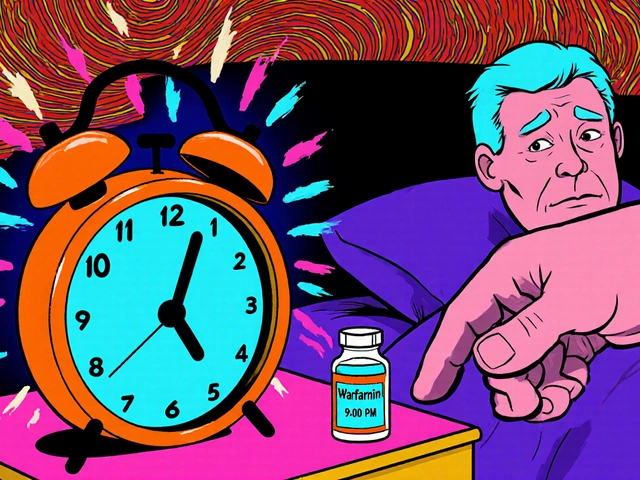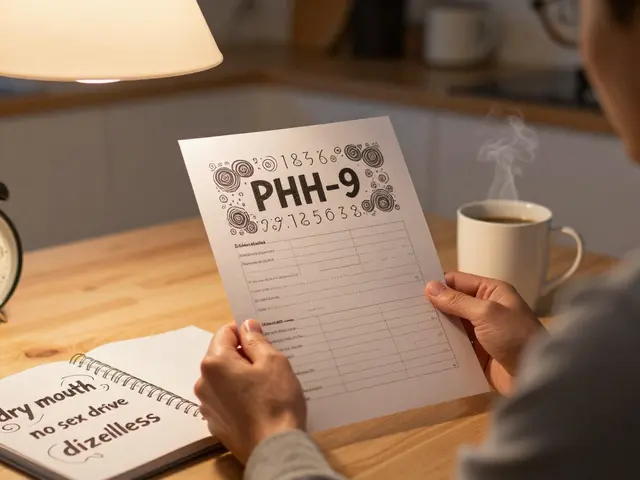
Dosage Guides – Safe Medicine & Supplement Dosing for the UK
Getting the right dose is the biggest factor in making a medicine or supplement work. Too little, and you might not feel any benefit; too much, and you could face side‑effects or even danger. Below you’ll find straight‑forward tips that help you decide the correct amount, whether you’re picking up a prescription, an over‑the‑counter pill, or a herbal capsule.
Why Correct Dosage Matters
Every drug has a sweet spot – the dose that balances effectiveness with safety. Doctors set that range based on years of research, your age, weight, kidney and liver function, and any other health issues you have. The NHS recommends you always stick to the prescribed amount unless a qualified professional tells you otherwise. Ignoring these guidelines can lead to missed treatment goals or harmful reactions.
Tips for Finding the Right Dose
1. Read the label or patient information leaflet carefully. It tells you the standard adult dose, any adjustments for children or seniors, and whether you need to take the medicine with food. 2. Ask your pharmacist. They can clarify confusing instructions, suggest measuring tools, and flag interactions with other meds you’re already using. 3. Consider your personal factors. If you’re underweight, have kidney disease, or are pregnant, the usual dose may need tweaking – always get a professional opinion first.
4. Start low, go slow. For many new prescriptions, especially those that affect the central nervous system, doctors start you on a low dose and increase it gradually. This approach reduces the risk of side‑effects and helps you find the minimum effective amount.
5. Use the right measuring device. A kitchen teaspoon is not accurate. For liquid medicines, use the dropper, syringe, or measuring cup that came with the product. For tablets, break them only if the label says it’s safe – some tablets have a special coating that shouldn’t be split.
6. What to do if you miss a dose? Generally, take it as soon as you remember unless it’s almost time for your next dose. In that case, skip the missed one and continue with your regular schedule. Never double‑dose to make up for a missed pill.
7. Watch for signs of over‑ or under‑dosing. Over‑dose symptoms can include nausea, dizziness, or unusual heart rhythms. Under‑dose may mean your symptoms don’t improve. If you notice anything odd, call your GP or pharmacist right away.
8. Keep a medication list. Write down every drug, supplement, and over‑the‑counter product you take, along with the dose and timing. This list helps health professionals spot potential interactions and ensures you stay on track.
9. Don’t rely on “one‑size‑fits‑all” advice from the internet. While many sites give general dose ranges, only your prescriber knows the exact amount right for you based on your medical history and current health status.
10. Check for updates. Dosage recommendations can change as new research emerges. If you’ve been on a medication for years, ask your doctor during a routine check‑up whether the dose is still the best choice.
Following these steps helps you stay safe and get the most out of any treatment. Remember, the goal isn’t just to take a pill – it’s to feel better without putting yourself at risk. When in doubt, a quick chat with your pharmacist or GP can save you a lot of trouble later.
-
21 Sep

-
21 Sep

Grifulvin V: Complete Guide to Eye Health Benefits, Dosage & Where to Buy
Discover what Grifulvin V is, how it supports vision, safe dosage guidelines, potential side effects, and the best places to purchase it in 2025. -
16 Sep
![Quibron‑T (Theophylline) Uses, Dosage, Side Effects, Interactions [2025 Guide]](/uploads/2025/09/quibron-t-theophylline-uses-dosage-side-effects-interactions-2025-guide.webp)
Quibron‑T (Theophylline) Uses, Dosage, Side Effects, Interactions [2025 Guide]
What Quibron‑T (theophylline) treats, safe dosing, side effects, and key interactions-plus 2025 guideline context and practical steps for patients and caregivers.





